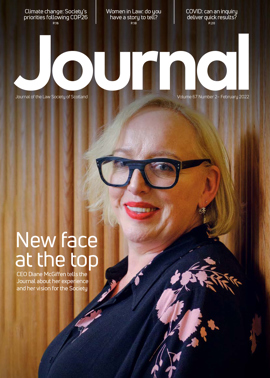Editorial: Rights of others
The widening gap between rich and poor in our society is well recognised, and successive Governments pursue schemes (or is that just slogans?) to do something about it. But it appears to me that there is another widening gap which is less commented on, though its manifestations certainly are, when they come to light.
These days, far more than just a few decades ago, many people and organisations devote time and effort to making us aware of the effects of our words and actions on those we come into contact with, particularly those in Equality Act protected groups defined on the basis of race, disability etc. And many businesses and other organisations now have people and policies dedicated to ensuring that these groups are given equal opportunities, are treated fairly and respectfully, and so forth. In all walks of life they should feel treated better than in the past.
Yet almost daily we are presented with evidence, via the news, that hateful and sometimes quite appalling behaviour is prevalent, if not endemic, and as likely to be on the rise as on the wane. Whether it is misogynistic (or worse) comments among police officers, disabled people left feeling that no one cares about them, or racism or homophobia in sport, to give just a few examples, it often feels as if those promoting a better way to live are fighting a losing battle. And that is before we even take account of the vitriol that is spread so easily on social media.
Politically, we are said to live in a post-truth society, a term that reflects the cynical manipulation of the news, and even of the way we view past events, that has regrettably also become a feature of today's world. It would be wrong, I think, to view either of these trends as the cause of the other, but looking at the wider picture perhaps makes it more understandable why we are where we are.
Can anything stem the tide? It is important that those who wish to promote respect and equal treatment do not give up in the face of setbacks or hostility. And if individuals remain the target of the ill-intentioned, it is equally important that there is a legal profession committed to helping them if they cannot secure redress by other means. Just as lawyers stand up for the poor who have no other remedy, so we prize our role in standing up for protected groups. That is why, particularly for our profession, it is so important that our own ethics and conduct meet the best standards. It is also why all in the profession should read and take to heart initiatives such as the recently published Racial Inclusion Group report on how we treat minorities in our own midst.
Regulars
Perspectives
Features
Briefings
- Human rights: Gendered passports survive challenge
- Pensions: Are employers ready for the challenge?
- Succession: Putting it right: scope of the s 3 remedy
- Property: When the debtor defaults
- In-house: Starting an in-house career, in the house!
- Criminal court: New year, familiar issues
- Employment: Is a "right to disconnect" on the horizon?
- Family: Parens patriae: a cross-border issue






